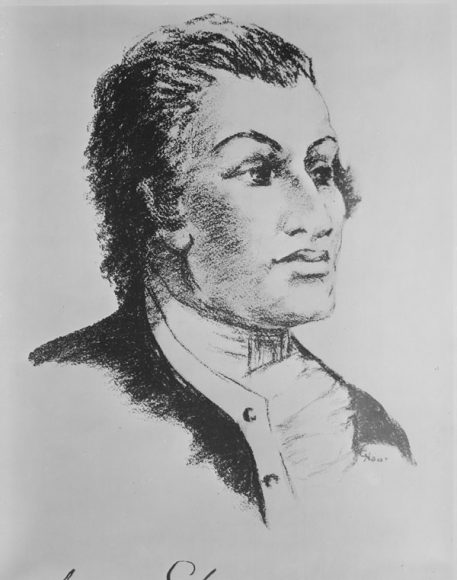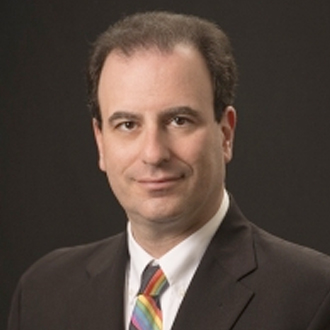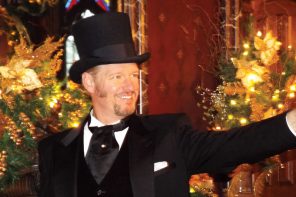Most history books focusing on the Revolutionary War offer in-depth consideration of the economic conflicts that helped fuel the break between England and its American colonies. Much less historical coverage is given to the financial challenges that the Americans faced in financing the conflict itself. War might be hell, but it isn’t cheap.
One of the behind-the-scenes heroes in helping to keep the American war effort afloat financially was Haym Salomon. For many years, his contribution to the revolution was either forgotten or marginalized. Even today, the depth of his work to bring about a free United States is underappreciated.
Salomon was born in Lissa, Poland, in 1740. His family was descended from Sephardic (Spanish and Portuguese) Jews who were expelled from their homeland during the Inquisition. In his youth, he traveled across Europe and displayed a talent for absorbing languages. In 1772, he left Poland following the partition that divided the nation between Prussian and Russian occupation and eventually settled in New York City as the Revolutionary War was beginning to take root.
Although new to the American colonies, Salomon quickly gave allegiance to the fight against the British crown and became active in the New York Sons of Liberty. In 1776, he received a contract as a supplier for American troops stationed in central New York. In 1777, he married Rachel Franks, whose brother Isaac was a lieutenant colonel on George Washington’s staff.
The British forces learned of Salomon’s activities in the Sons of Liberty and arrested him for espionage. However, Salomon’s captors felt he could be of service to them as a translator for the Hessian mercenaries imported from Germany to fight against the American forces. Salomon was released and agreed to communicate with the Hessians, although he disregarded the British messaging and encouraged the mercenaries to defect from their duties. Salomon also helped engineer the escape of several prisoners in British captivity.
However, the British were not as inefficient as Salomon might have imagined and he was arrested again in early 1778 and sentenced in a military trial to execution by hanging. But the resourceful Salomon hid some gold coins in his clothing during his captivity and bribed a guard, thus enabling an escape to Philadelphia, where he was joined by his wife and their newborn.
Salomon petitioned the Continental Congress in August 1778 for employment, noting his service to the patriots’ cause while in New York. The Continental Congress did not respond to his inquiries, so Salomon turned his focus on growing his own financial brokerage business.
By 1780, Salomon was drawn back to the cause of American independence by serving as a financial liaison with the French government and its military presence in the colonies. He gained appointments as broker to the French consul and treasurer of the French armed forces aiding Washington’s army. He also secured a spot as the fiscal agent to Chevalier de la Luzerne, the French minister to the nascent United States.
Salomon also worked with the Dutch and Spanish government representatives of the era in a similar position, mixing diplomacy and finance in order to cement ties between Old World kingdoms and the New World republic. In these roles, Salomon directed foreign funds into the Bank of North America, the financial institution founded by Robert Morris, the superintendent of finance for the new American government. Without this input, the young nation would have been flat broke.
In the final stretch of the war, Washington found his army running on financial empty. Through a mix of fundraising and personal loans, Salomon provided more than $650,000 (approximately $10 billion in today’s money) to finance Washington’s military campaign. He also advanced funds to members of the Continental Congress — the same body that refused to employ him a few years earlier — and to several high-level federal officers who were not being paid by the new government for their services. Although these were loans, Salomon charged interest that was far below the market rates of the day, and he was in no rush to require repayment.
No less a figure than James Madison, the future author of the U.S. Constitution, was reliant on Salomon’s generosity during this period of colonial financial difficulty. “The kindness of our little friend in Front Street, near the coffeehouse, is a fund which will preserve me from extremities, but I never resort to it without great mortification, as he obstinately rejects all recompense,” Madison stated. “The price of money is so usurious that he thinks it ought to be extorted from none but those who aim at profitable speculations. To a necessitous delegate he gratuitously spares a supply out of his private stock.”
Salomon was also a prominent and proud figure within Philadelphia’s Jewish community. He was one of the original members of the Congregation Mickvé Israel of Philadelphia and the treasurer of a philanthropic Jewish organization that aided the destitute of all faiths. He also led an effort to force the Council of Censors of Pennsylvania to drop the oath that prevented non-Christians from holding political office and defended the Jewish community from scurrilous newspaper reports that slandered all Jewish business people as being war profiteers.
Into the early 1780s, Salomon’s health began to give out. He contracted tuberculosis and died at the age of 44 in January 1785. At the time, he had not been repaid for his loans to the new American government, which left his widow and children deeply in debt. Efforts by his family in the 19th century to seek compensation were routinely ignored by Congress.
Recognition of Salomon’s efforts on behalf of the Revolutionary War was very slow in coming. A movement in 1893 to create a special Congressional Gold Medal honoring Salomon came to naught. Congress got around to honoring Salomon in 1936 with a resolution to build a statue of him in Washington D.C., but funds were never appropriated and the project was forgotten. In 1943, the U.S. Navy named the Liberty Ship S.S. Haym Salomon in his honor.
In 1976, the U.S. Postal Service issued a commemorative stamp honoring him as part of the bicentennial, which may have been the first time many Americans became aware of his work.
Outside of government, efforts to reclaim Salomon’s legacy percolated in the mid-20th century. In 1939, Warner Bros. produced the short film “Sons of Liberty” starring Claude Rains as Salomon and Gale Sondergaard as his wife, Rachel. This film, directed by Michael Curtiz, won the Academy Award for Best Short Subject (two-reeler). In 1941, best-selling author Howard Fast wrote the first biography on the patriot, “Haym Salomon, Son of Liberty.” Subsequent biographies aimed at adult and young adult readers have since been published. Also in 1941, Chicago unveiled the Heald Square Monument, which featured Washington, Salomon and Robert Morris as equals in a planning conversation.
Salomon has also become the subject of a few amusing myths. For years, conspiracy theorists insisted the Star of David pattern on the Great Seal of the United States was a tribute to Salomon that was ordered by Washington. It was actually a constellation designed to create a symmetrical balance for the odd-numbered 13-star formation and had no religious symbolism. Another tale has Salomon interrupting a solemn Yom Kippur service to respond to a plea for funding by Washington. No such incident occurred.
Perhaps the most eloquent tribute to Salomon can be found at the base of the Heald Statue, with an inscription that reads: “Haym Salomon — Gentlemen, Scholar, Patriot. A banker whose only interest was the interest of his Country.”





